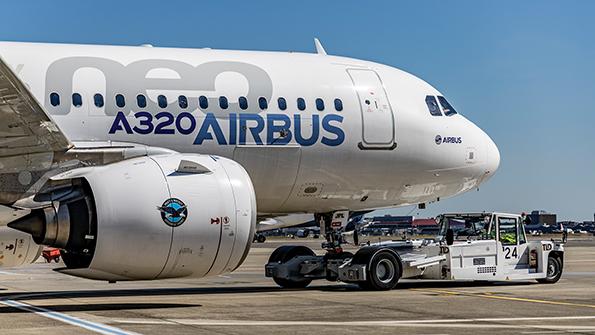France Funds Research Into Conventional A320neo Successor

Airbus has begun work on an A320neo successor program, which is receiving more funding than is a zero-emissions aircraft.
In June 2023, Airbus Group CEO Guillaume Faury opened a second avenue for Airbus. He told Aviation Week that work had begun on a more conventional successor for the A320-neo family, a project known internally as eAction. The aircraft is intended to complement Airbus’ ZEROe hydrogen project. Now eAction is gaining momentum, with the French government agreeing to a first round of research support.
France has committed €300 million ($330 million) to research and development support per year in 2024-27. By contrast, public support for startup companies working on electric or hydrogen propulsion is limited to a €65 million envelope.
The difference in resource allocation calls into question the realism of Airbus’ hydrogen project, which French ministries describe as involving an extended time frame. The principle of funding large, profit-making corporations such as Airbus and Safran may also create some unease. Some suppliers complain they too often see little, if any, of the money. Moreover, aerospace research center ONERA has proved its worth and yet receives comparatively modest government resources. In 2022, it was given a €111 million subsidy within a total budget of €277 million.
The funding at least shows how important Airbus is for the French government. The aerospace sector, largely driven by the Toulouse-based airframer, was the No. 1 contributor to the country’s trade balance in 2022.
Nevertheless, state support might raise new issues after a 2021 deal that settled a longstanding transatlantic trade dispute concerning Airbus’ and Boeing’s public funding. The accord created a framework for research and development funding. Both the U.S. and the EU agreed to support their respective manufacturers financially in a transparent way. Aircraft import tariffs were suspended for five years while a working group was tasked with finding a permanent solution.
“We need to find acceptable mechanisms to incentivize private sector investment and share risks with governments in order to support the design and development of new aircraft programs that will deliver the decarbonization of aerospace,” Faury told the Financial Times Dec. 3.
“We need a new generation of planes,” the Airbus CEO told Aviation Week in June. “We are preparing all the technologies for the plane, the production system, the digitalization of the plane and for using data to be able to fly the planes better. We have to be at 100% of [sustainable aviation fuel (SAF)] or close to 100% of SAF by 2050, not only technically but commercially as well. [This means having] planes that can fly economically under these conditions. We need aircraft that burn around 20-25% less fuel than what we are using today with the A320neo or the A321neo. That’s why we are preparing entry into service in the second half of next decade targeting 2035, maybe between 2035 and 2040.”
The decisions were made public after a Dec. 15 meeting of the French Civil Aviation Research Council (CORAC), which met to align the sector’s research and technology, an industry ministry staffer explained. “OEMs are setting the tone for future aircraft,” he said.
Research and technology are now clearly directed toward the A320’s successor. “Our priority is the ultraefficient aircraft,” a transport ministry staffer said. The annual €300 million will support “breakthrough technologies including engines,” she noted. The CFM International Revolutionary Innovation for Sustainable Engines (RISE) open fan demonstrator on which Safran and GE are working may benefit, she added.
As for propulsion, Airbus is “working very closely with CFM to look at all the dimensions of flight or integration—of performance, of certification and so on—to decide whether [RISE] is a viable option or not,” she said.
“Our teams believe it is likely to be viable, but there are still a number of boxes that need to be ticked,” Faury said in June. “We will be flight-testing the open alternative and working a lot on simulation and computation with CFM to look at all the dimensions of what it has to deliver. But yes, we consider it to be a promising technology.”
The French government is also putting time pressure on Airbus: “Our objective is that the sector moves into production mode by 2030,” the transport ministry staffer said. “The technology readiness level should be high enough—the technology may not be entirely mature, but we should be confident a development can be completed. CORAC’s goal is to help maturation.”
Hydrogen needs more time, the transport ministry staffer said. “It is even more of a breakthrough—the [technology readiness level] is even lower and even more steps are required,” she noted. Airbus, however, has long referred to 2035 as the service-entry year for a zero-emission aircraft powered by hydrogen, using either gas turbines or fuel cells.
Devised for smaller companies, a second, €65 million call for projects is being launched. “It is dedicated to emerging projects and airframers, typically startup companies working on electric or hydrogen propulsion,” the industry ministry staffer said.







Comments